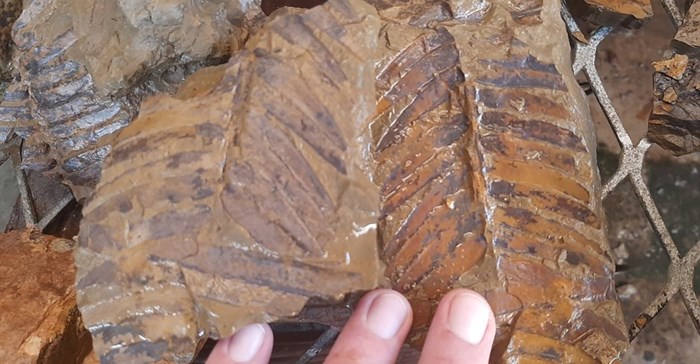
Related
Top stories






More news


The fossilised trees are remarkably found in their original living positions, accompanied by leaf litter and soil with signs of ancient worm burrows. Researchers have already identified at least two potential new plant species awaiting further classification.
"Some of the leaves were so well preserved that the spore cases (sporangia) on the underside of the ferns could be seen," explained palaeontological consultant Dr Dewald Wilken, who stumbled upon the site on 13 April 2023. "But the perfect leaf preservation is only part of this find."
Further intrigue lies in the contrasting preservation techniques found at the site. The trees have undergone silicification, while the leaf litter shows both imprints and carbonisation – a combination that baffles scientists due to the vastly different processes involved.
To Dr Wilken's knowledge, this mix has never been observed anywhere else in the world.
The site also holds multiple fossil layers, chronicling cycles of lush vegetation, catastrophic floods, and regrowth. This treasure trove of prehistoric life is now under investigation by paleo-botanist Dr Rose Prevec at the Albany Museum in Makhanda.

The R336 road upgrade project area rests on the fossiliferous Kirkwood Formation, leading to the inclusion of palaeontological monitoring throughout construction. Dr Wilken stresses that the area holds immense palaeontological potential.
Sanral, responsible for the R275m road project, has played a crucial part in this discovery. "We are proud to be part of this big discovery which not only contributes to education and research in South Africa but globally as well," says environmental coordinator Nenekazi Songxaba.
This find highlights a commitment to environmental awareness and the potential rewards of collaboration between infrastructure development and scientific discovery.